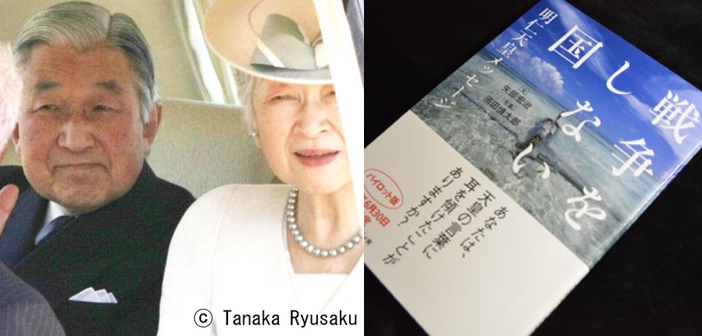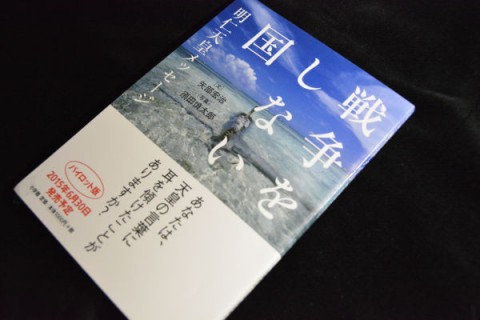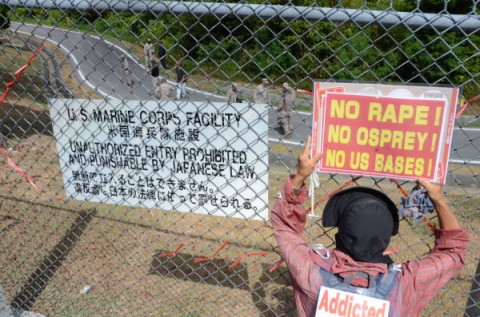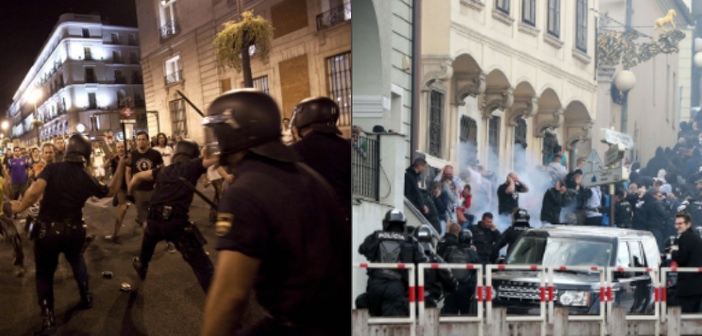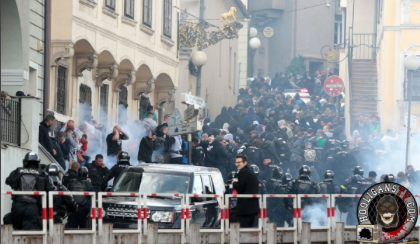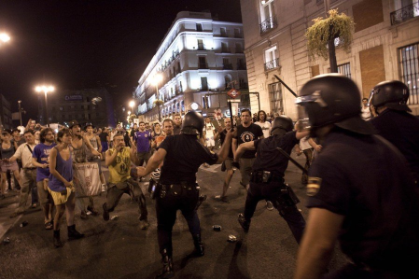image: Source
Country That WIll Never Stage War – Message from Emperor Akihoto
I think that it is timely publication
of this book. The book gives a clear-cut message. I think it will rattle
the Abe administration.
Masatoshi
Takeshita
June
23, 2015
English translation of a Japanese article –
Ryusaku Tanaka’s Journal – June 22, 2015 –
Country
That Won’t Go To War – Message from Emperor Akihito –
This
book clearly shows that Prime Minister Abe tries to completely deny the postwar
history.
This
is a “controversial book”
by Mr. Koji Yabe, author of the book “”Why can’t Japan stop ‘bases’ and ‘nuclear
power generation’”.
It
is composed of the follow-up of
Emperor Akihoto’s footsteps and remarks. It is equal to staring at Japan’s 70 years
after the war. (Words printed in boldface are this
writer Tanaka’s comment/The fine print is quotation from the book.)
Seven people who had been sentenced to
death by hanging (in the International Military Tribunal for the Far East) were
executed on December 23, 1948. It was the 15th birthday of Emperor
Akihito.
On April 29, (1946), the birthday of
Emperor Showa, class-A war criminals were prosecuted.
These are powerful and serious messages
from the occupation army. According to the author, “The shock Emperor Akihito
got on his 15th birthday always underlies a 70-year journey of
contemplation.”
The
Liberal Democratic Party plans to establish an organization to review the Tokyo
Tribunal of War Criminals (International Military Tribunal for the Far East)
under Inada, Chairman of Policy Research Council. Needless to say, it denies
the postwar history, and it also denies Emperor Akihito’s personal history.
Imperial couple heading to Kensei Memorial
Museum to attend the ceremony of
“Restoration Sovereignty Day” sponsored by the
government
= Around the Miyakezaka
intersection on April 28, 2013
Photography: News crew =
Profound
remorse to the last war leads to strong feelings to Okinawa.
Emperor Akihoto has
visited Okinawa ten times, including when he was crown prince. When he made his
first visit (in 1975), an incident took place, in which the Emperor was thrown
a firebomb at by an extremist.
On the night of the incident, His Imperial
Highness gave a comment in writing. It said: “It is unforgettable unhappiness
that Okinawa became the only battlefield involving the residents in the last
war and it has paid a lot of sacrifices to this date.”
It was a message that “he promised to keep
remembering, thinking of, directing attention to the precious sacrifices
Okinawa paid in the past.”
This
is shown in Emperor’s opinion on the issue of U.S. military-base in Okinawa.
In a press conference
held on Emperor’s 63th birthday (December 23, 1996), the Emperor stated: “I hope
that the Okinawa issue will be fully discussed between the Japan and U.S.
governments and the door to a solution will be opened in consideration of the
happiness of Okinawans.
The Emperor made the same remark in an
interview with U.S. President Clinton on the spring of this year.
The
Emperor gives extraordinary consideration to the Okinawa issue.
There
is a world of difference in thoughtfulness to Okinawa between the Emperor and
Prime Minister Abe and government bureaucrats who repeat the word “there is
nothing but Henoko” without making any diplomatic efforts.
The Okinawa issue the Emperor has continued
to give a careful consideration to.
= August 2013, Futenma base Photograph: this writer =
Emperor
Akihito, who spent his childhood in the era of Japanese empire education,
abhors thought control.
At a fall imperial garden
party in 2004, Mr. Kunio Yonenaga, who served as Tokyo educational board
member, said to the Emperor: “My job is to have every school across the country
hoist a national flag and to have their students sing the national anthem.”
His Majesty responded. “It would be desirable not to compel them to do so.” I think many people remember this scene,
because it was broadcast on TV news.
Just
recently, Minister of Education, Culture, Sports, Science and Technology
Hirofumi Shimomura practically virtually called on national university
presidents to sing the national anthem and hoist a national flag. It has caused
controversy.
His Majesty gave New Year’s
thoughts on January 1 this year (2015) as follows:
“This year marks the 70th
anniversary of the end of World War II, *snip* I think it is most important for us to take this opportunity
to study, and learn from the history of this war, starting with the Manchurian
Incident of 1931,..” .. I want to
have Prime Minister Abe read it out.
However,
the most ignorant prime minister after the war, who has no satisfactory
knowledge of the Potsdam Declaration, starting point of the post Japan, is
rushing headlong into establishment of war bills.
